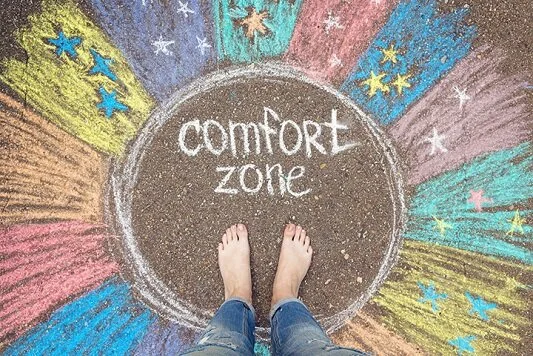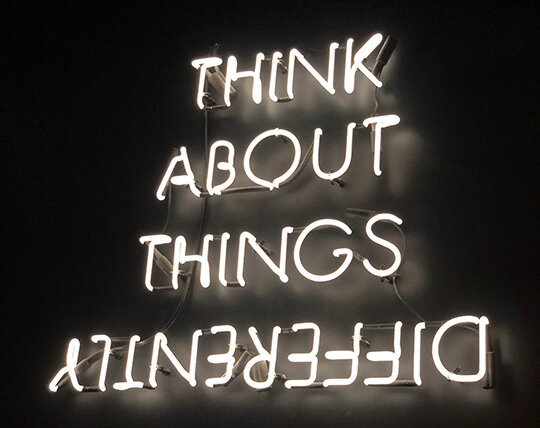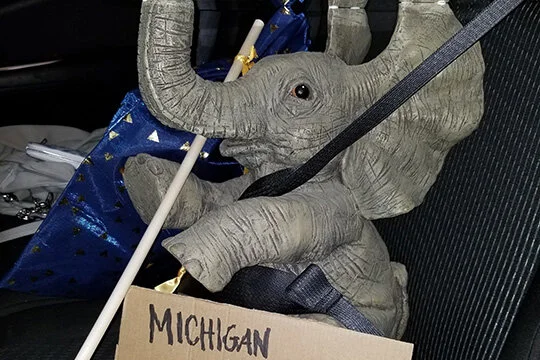When the position of Program Director was introduced to me I was terrified. My initial reaction was to refuse it as I didn’t think it would be something I was capable of doing. My whole life I have always stuck to what I’ve known. I’ve enjoyed the comfort zone! After much consideration and words of encouragement, I decided it was time to step out of my comfort zone and take the leap.
Minimalism in the Midst of COVID-19
Think Spring!!! Well Attempt to Anyways…..
Due to the coronavirus, the closings of public activities and the recommended social distancing that is in effect, our population have limited activities to participate with, out in the community.
Not only does this take a toll on our clients, but also us caregivers. There are activities for everyone to participate with, if given a choice.
Strive for Peace - Find the Joy
Everyone is dealing with the craziness and uncertainty of Covid-19. Everywhere you look there is evidence of this: the news, social media, empty parking lots, empty grocery shelves, and individuals walking around with face masks on. Today, this is our new normal. I found that my surroundings have increased my stress and anxiety. I sit here and think, what is within my control?
Decision Fatigue
Brain Injury Alliance
March has many topics on the awareness front, but what is near and dear to my heart is Brain Injury Awareness. My son had an accident where at eight months of age he had two fractures to his skull. I had just dropped him off with a family member for the day and was heading to work. He managed to flip the chair in which he was eating breakfast in and hit his head on a ceramic tile floor.
The Importance of Person-Centered Training
Why is a person-centered approach so important? In the past, individuals we serve were not only expected to fit in with routines of daily life, they also had very little say. Most of the time they had no say at all in the types of services they received and/or how the services were provided. Today in the field, our work in that has changed for the better. Person-centered care has become the main focus for providing services and supports to our individuals, and has opened up so many opportunities they may have never experienced.
Declutter Your Home, Declutter Your Mind
One of my most favorite times of the day is getting off work and coming home to a clean house. All of a sudden the possibilities of what the rest of the day will include are endless, but they DO NOT include dishes for what seems like the tenth time already this week, mountains of laundry (dirty clothes in baskets and clean clothes in baskets as well because honestly who has time to fold them?) and what seems like endless mundane chores.
How to Not Take Things Personally
While working with Thrive, we can run into some difficult situations with residents and coworkers, right? This topic comes up a lot at Esther House and I’m sure many of you have had these conversations. How to not take things personally can be very hard when you are invested in the work you do. We often build healthy working relationships with our residents and it can be challenging to cope when we experience intense behaviors that might come off very personal.
Self-Validation
How do you know what you’re feeling, and why you feel that way? The answer might seem complicated, however, it starts with self-validation.
The concept of self-validation is an idea that is often learned throughout one’s life, yet not explicitly taught in an educational setting. For some, learning how to self-validate comes from caregivers, friends, or is a habit that is built through self-awareness over time. People who self-validate on a regular basis are more likely to be emotionally intelligent, communicate their needs in ways that are effective, and have quality relationships.
The Courage to Change
In normal waking life, we perceive our center of experience as being fixed within our bodily borders, as if we’ve burrowed ourselves into a corporeal shell that seals us off from the outside world. We then call that shell “me,” and begin ascribing identifiers like “intelligent, funny, mother, son, friend, quirky, nice, attractive, ugly, fat, stupid, failure” onto it and declare it gospel. I’ll be bold enough to make the assumption that all of us-- whether it was during a change of careers or during a traumatic event-- have experienced a sort of crack in the shell that had always defined us. This blip in the continuity of our life may end up becoming our religion, our greatest fear, or perhaps just a “weird” thing that happened to us that we’d rather forget. However we make sense of these blips, they seem to challenge our sense of who we are in relation to the world, and as I’ll try to argue: who we want to become.













